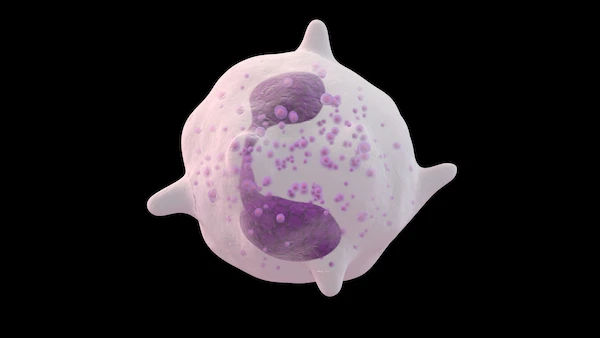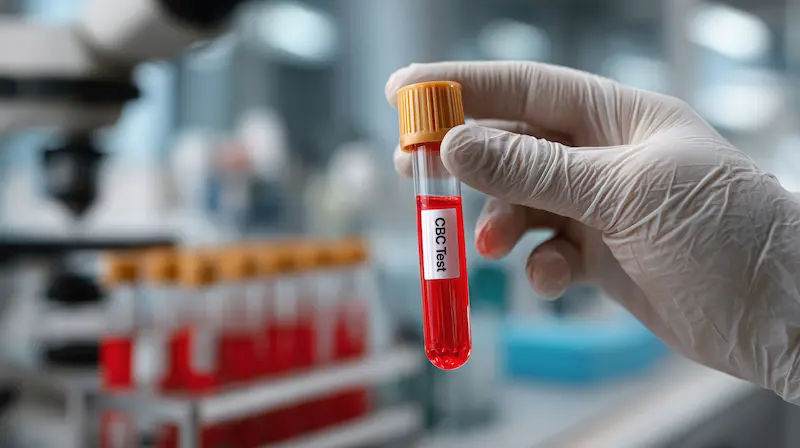White Blood Cells Overview and Functions
Explore the role of white blood cells (WBCs) in the immune system, their different types, normal ranges, and how they help protect the body from infections and diseases.


White blood cells (WBCs), also known as leukocytes, are an essential part of your immune system. They act as your body’s defense force, protecting you from infections, diseases, and foreign invaders like bacteria, viruses, and fungi. Understanding their role can help you appreciate how your body fights illnesses and stays healthy.
What Are White Blood Cells?
White blood cells are a type of blood cell produced in the bone marrow. Unlike red blood cells, which carry oxygen, WBCs focus on keeping your body safe from infections and harmful substances. They circulate in your blood and tissues, constantly monitoring for threats.
Consult a Top Specialist
Types of White Blood Cells
There are five main types of white blood cells, each with a unique function:
- Neutrophils – The most common type, they attack bacteria and fungi.
- Lymphocytes – Include B-cells (produce antibodies) and T-cells (destroy infected cells).
- Monocytes – Clean up dead cells and help fight infections.
- Eosinophils – Fight parasites and play a role in allergic reactions.
- Basophils – Release chemicals like histamine during allergic responses.
Why Are White Blood Cells Important?
- White blood cells are crucial for:
- Fighting infections (bacterial, viral, fungal).
- Detecting and destroying abnormal cells (like cancer cells).
- Healing wounds by removing dead cells and debris.
- Regulating immune responses (allergies, autoimmune diseases).
What Happens When White Blood Cells Are Low or High?
When there are variations in the white blood cell count, the following conditions may occur, Low White Blood Cell Count (Leukopenia) A low WBC count weakens your immune system, making you more prone to infections. Causes include:
- Viral infections (like flu or HIV)
- Certain medications (chemotherapy, antibiotics)
- Autoimmune disorders (lupus, rheumatoid arthritis)
- Nutritional deficiencies (vitamin B12, folate)
Symptoms: Frequent infections, fatigue, fever, slow healing.
High White Blood Cell Count (Leukocytosis)
A high WBC count usually indicates an infection or inflammation. Other causes:
- Bacterial infections
- Stress or intense exercise
- Leukemia (cancer of WBCs)
- Allergic reactions
Symptoms: Fever, body aches, swelling, fatigue.
How to Keep Your White Blood Cells Healthy
You can support your immune system by making simple lifestyle changes:
1. Eat a Balanced Diet
- Vitamin C (oranges, bell peppers, broccoli) boosts immunity.
- Protein (eggs, lean meat, beans) helps produce WBCs.
- Zinc (nuts, seeds, seafood) strengthens immune response.
2. Stay Hydrated
- Water helps transport WBCs efficiently through your bloodstream.
3. Exercise Regularly
- Moderate exercise improves circulation and immune function.
4. Get Enough Sleep
- 7-9 hours of sleep helps your body regenerate WBCs.
5. Manage Stress
- Chronic stress weakens immunity—practice yoga, meditation, or deep breathing.
6. Avoid Smoking & Excessive Alcohol
- These can damage WBCs and lower immunity.
When to See a Doctor?
Consult a doctor if you experience:
- Frequent infections
- Unexplained fatigue
- Persistent fever
- Sudden weight loss
If you suspect an issue with your white blood cell count, a simple Complete Blood Count (CBC) test can help diagnose the problem. You can easily book a test or consult a specialist through Apollo 24|7 for expert advice.
Get Your Health Assessed
Final Thoughts
White blood cells are your body’s silent warriors, working tirelessly to keep you healthy. By maintaining a balanced lifestyle, you can support their function and strengthen your immunity. If you notice any unusual symptoms, don’t hesitate to seek medical advice—early detection makes a big difference!
Consult a Top Specialist
Consult a Top Specialist

Dr. Chaithra H
General Physician/ Internal Medicine Specialist
6 Years • MBBS, MD General Medicine, DNB General Medicine
Bangalore
Apollo 24|7 Clinic - Karnataka, Bangalore

Dr. Mohammed Kamran
General Practitioner
5 Years • MBBS, FIDM
Nashik
Apollo 24|7 Clinic - Maharashtra, Nashik

Dr. Jawwad Mohammed Kaleem
General Practitioner
4 Years • MBBS
Hyderabad
Apollo 24|7 Clinic, Hyderabad

Dr Divya Lekha Gunta
General Practitioner
10 Years • MBBS, MD (Pathology)
Visakhapatnam
Apollo 24|7 Clinic - Andhra Pradesh, Visakhapatnam

Dr. Siri Nallapu
General Practitioner
5 Years • MBBS
Hyderabad
Apollo 24|7 Clinic, Hyderabad
Consult a Top Specialist

Dr. Chaithra H
General Physician/ Internal Medicine Specialist
6 Years • MBBS, MD General Medicine, DNB General Medicine
Bangalore
Apollo 24|7 Clinic - Karnataka, Bangalore

Dr. Mohammed Kamran
General Practitioner
5 Years • MBBS, FIDM
Nashik
Apollo 24|7 Clinic - Maharashtra, Nashik

Dr. Jawwad Mohammed Kaleem
General Practitioner
4 Years • MBBS
Hyderabad
Apollo 24|7 Clinic, Hyderabad

Dr Divya Lekha Gunta
General Practitioner
10 Years • MBBS, MD (Pathology)
Visakhapatnam
Apollo 24|7 Clinic - Andhra Pradesh, Visakhapatnam

Dr. Siri Nallapu
General Practitioner
5 Years • MBBS
Hyderabad
Apollo 24|7 Clinic, Hyderabad

.webp)



